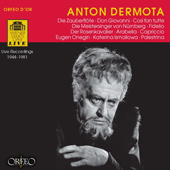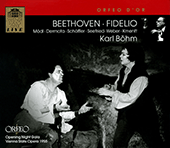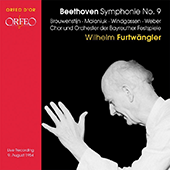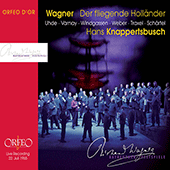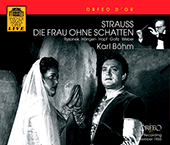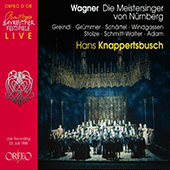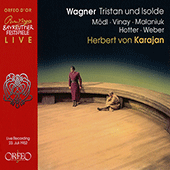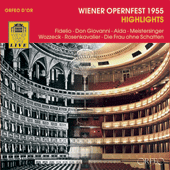Ludwig Weber
Although Weber initially planned to become a schoolteacher, he also studied painting with Alfred Roller, the distinguished scenic designer for the Vienna State Opera, at the Vienna Art School (Wiener Kunstgewerbeschule); and while singing in the Vienna Oratorio Association (Wiener Oratorien- Vereinigung) he realized that he had vocal potential. He therefore decided to pursue a career in opera, studying with the respected teacher Alfred Borrotau from 1919.
Weber made his operatic stage debut in 1920 at the Vienna Volksoper as Fiorello / Il barbiere di Siviglia and continued to sing small roles with the Volksoper until 1925, when he was engaged as principal bass at the Wuppertal Municipal Theatre. After two years there he joined the Düsseldorf Opera, where he stayed until 1932. During 1930 he sang in the production of Der Ring des Nibelungen at the Théâtre des Champs-Élysées, Paris, with Franz von Hoeslin conducting, recording the parts of Wotan and the Wanderer with this company for Pathé. He was with the Cologne Opera for the 1932–1933 season before joining the Bavarian State Opera, Munich, where he remained until 1945. Here he sang the full range of bass roles and took part in the premiere of Richard Strauss’s Friedenstag in 1938.
At the Royal Opera House, London, Weber made his debut in 1936 as Pogner / Die Meistersinger von Nürnberg. He followed this with Gurnemanz / Parsifal, a performance described by Ernest Newman as ‘unsurpassable’. In addition he sang Hunding / Die Walküre and Hagen / Götterdämmerung. During the Covent Garden 1937 season he undertook Daland / Der fliegende Holländer and King Mark / Tristan und Isolde; and in 1938 appeared as Rocco / Fidelio and Osmin / Die Entführung aus dem Serail, which he was described as singing with ‘consummate ease’. Later appearances here included several bass roles in the Ring (1950), followed by the title role in Boris Godunov (1950–1951), Gurnemanz and Pogner (both 1951).
Weber first appeared at La Scala, Milan during the 1938–1939 season, returning in 1942, 1948 and 1950; and at the Salzburg Festival in 1939 as the Commendatore / Don Giovanni, which was followed by Sarastro / Die Zauberflöte in 1941 and Osmin in 1945. He returned to the Salzburg Festival to sing the Commendatore (1946), Dr Bartolo / Le nozze di Figaro (1946–1947) and Saint-Just in the premiere of von Einem’s Dantons Tod (1947).
After the end of World War II Weber joined the Vienna State Opera, singing Rocco at its reopening in 1955 and remaining there for the rest of his singing career. His parts included, in addition to those already mentioned, Baron Ochs / Der Rosenkavalier, Kecal / The Bartered Bride, Kaspar / Der Freischütz, Barak / Die Frau ohne Schatten and the title part in Wozzeck. He also appeared at the Paris Opera (1948–1950 and 1953), at the Teatro Colón, Buenos Aires and in Amsterdam, Brussels and Florence. Throughout the 1950s he was a mainstay of the new Bayreuth Festival, appearing there between 1951 and 1963 as Gurnemanz (1951–1956 and 1961), Fasolt / Das Rheingold (1951–1955 and 1958), Hagen (1951), Pogner (1952–1953), King Henry / Lohengrin (1954), Daland (1955–1956) and Titurel / Parsifal (1961, 1963).
In 1961, the year in which he was made an honorary member of the Vienna State Opera, Weber began to teach at the Salzburg Mozarteum.
He possessed a rich bass voice which he could adapt with ease equally to roles of comedy, malice and suffering.
© Naxos Rights International Ltd. — David Patmore (A–Z of Singers, Naxos 8.558097-100).








